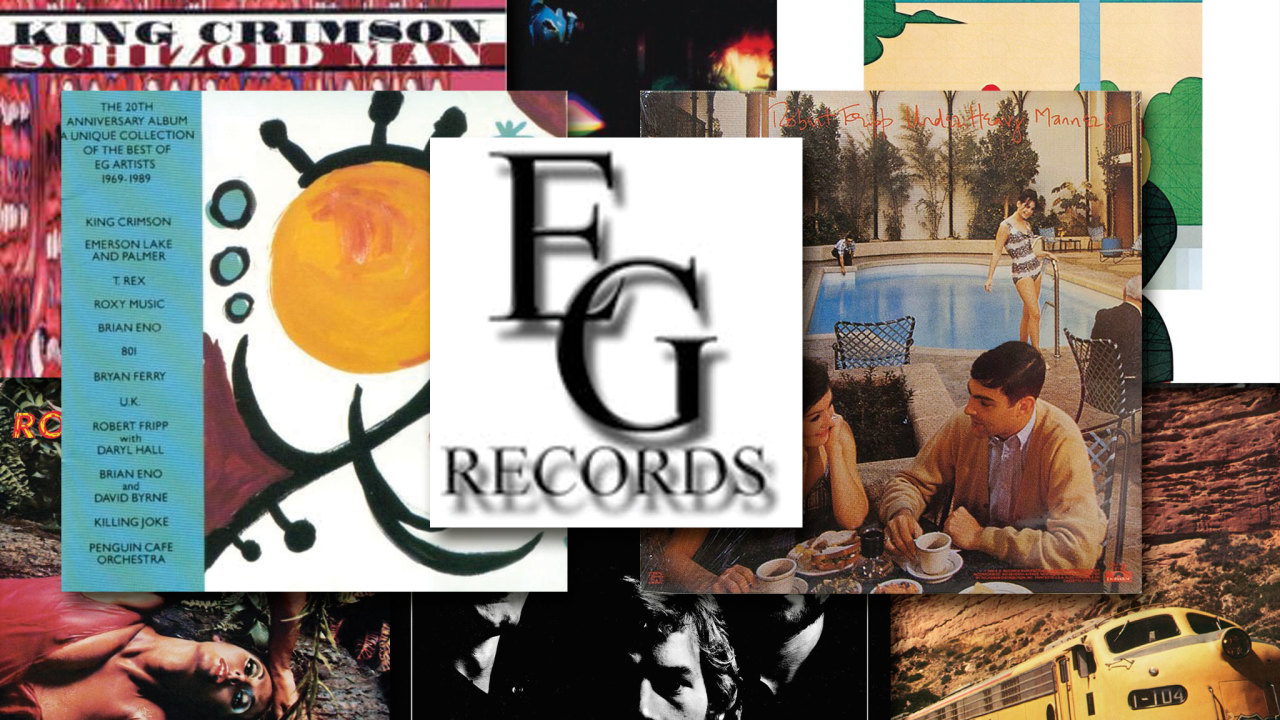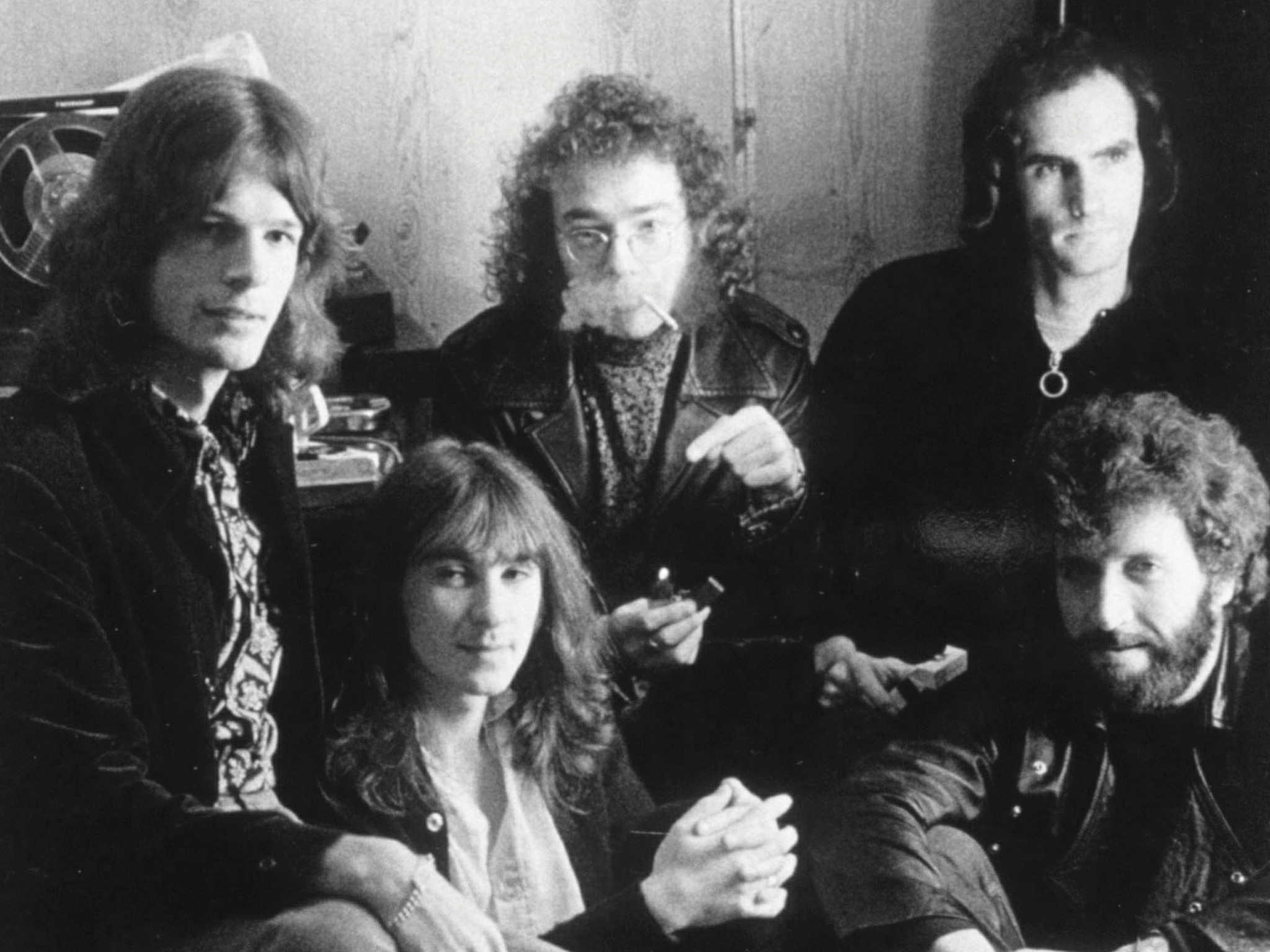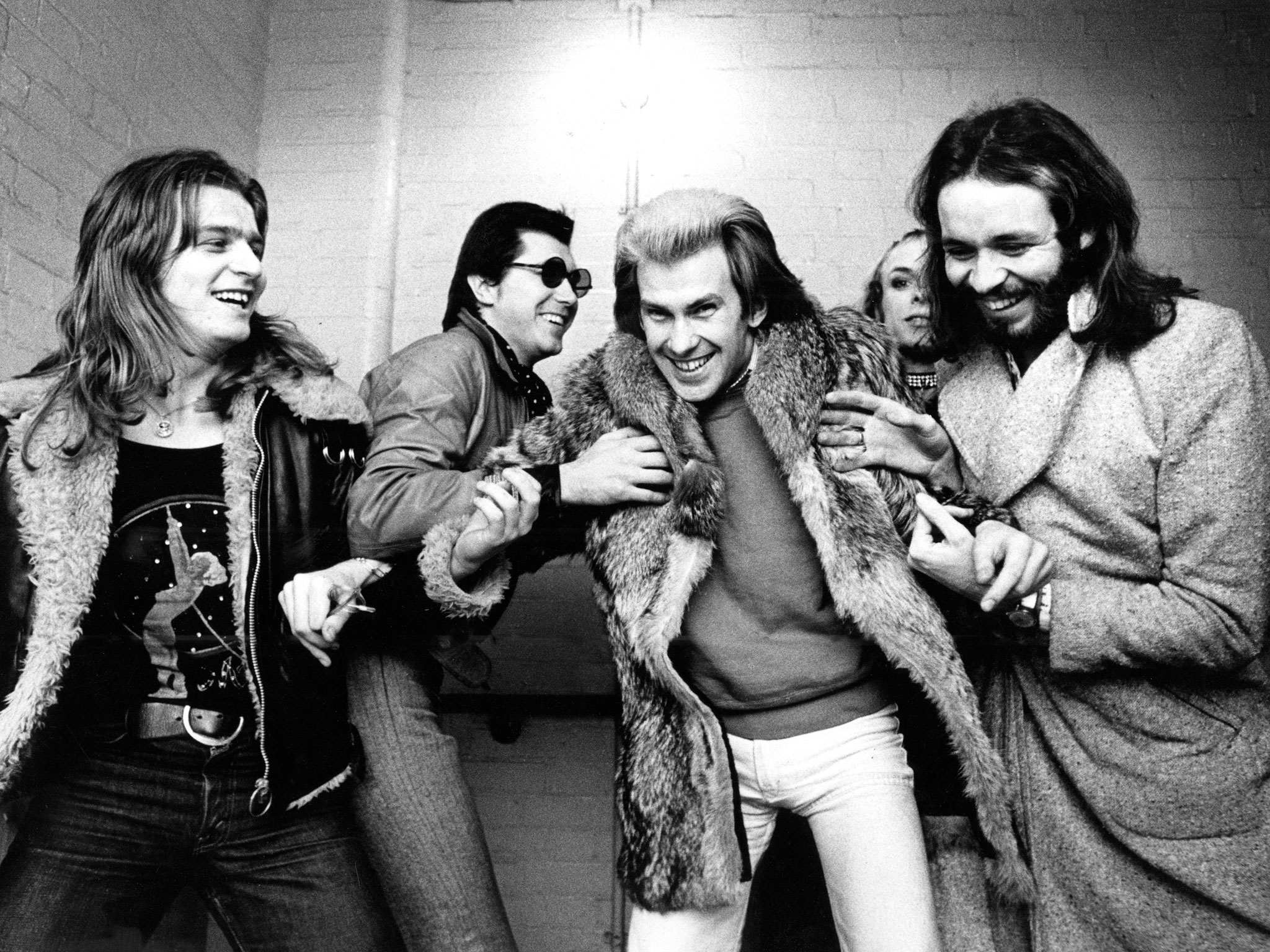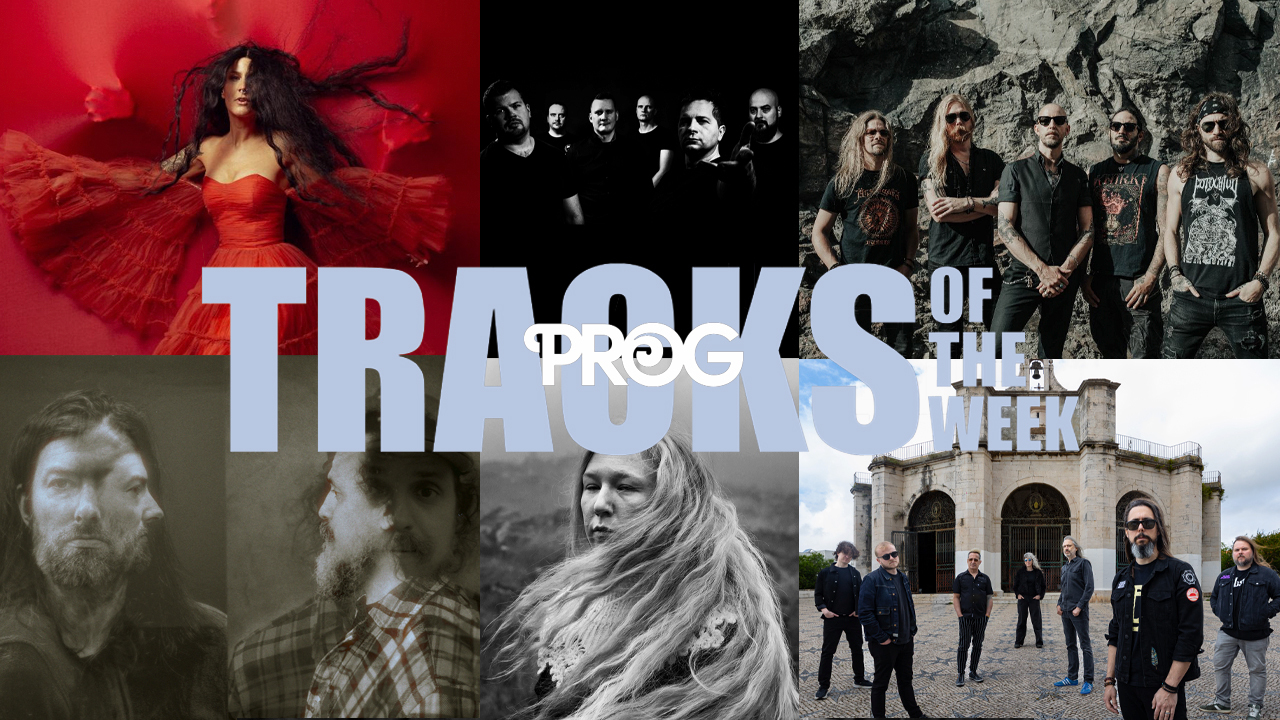Mad As Tits But Successful! A Brief History of EG Records
Relive the magic of some of the greatest imprints of all time in Prog’s new bite-sized label guide.

For many years, EG Records was not a label, per se. It was a management and publishing company that leased out its artists’ work. EG licensed their material to, firstly, Island Records, before moving to Polydor in the later 70s. Then, through the Editions EG imprint, it finally became a label. It ended up being distributed by Virgin.
Founded by David Enthoven (E) and John Gaydon (G), EG’s function was, as author and former Melody Maker editor Ray Coleman was to note in 1989, to “nourish, support and project a keenly focused brand of rock. Not necessarily manufactured with colossal sales in view.” It seemed to revel in its celebration of the fringes of the rock world: the eccentric, the esoteric and the different.
Of course, it was another group of rich kids playing at music, but what joy and difference they brought. They had form as well: Gaydon had played rhythm guitar with Harrow-based group A Band Of Angels (with singer Mike d’Abo) and Enthoven had been their road manager. “It was kind of gentlemen at play,” Bryan Ferry was to recall. “They had their Harley Davidsons and they were like public schoolboy Hells Angels with their leather jackets and cowboy boots.”
There may be fewer completists and aficionados of EG as there are of, say, Deram or Island, but EG’s influence has proved boundless. Its success is closely linked with Island Records, who gave them a home and nurtured their incredible roster of talent.
“EG was quite a successful company – as mad as tits, but successful,” Enthoven told author and Brian Eno biographer David Sheppard in 2008. “It was quite a vibey place to be.”

HOW IT BEGAN:
After the demise of A Band Of Angels, Enthoven and Gaydon took jobs at Noel Gay Artists, one of the largest and most established talent agencies in the country. Buoyed by the spirit of the age, the old Harrovians set about establishing a management company, first signing King Crimson, who blew onto the rock scene in 1969 with remarkable force. The pair had been aware of Crimson leader Robert Fripp through Giles, Giles & Fripp.
Sign up below to get the latest from Prog, plus exclusive special offers, direct to your inbox!
In January 1969, Fripp invited Enthoven and Gaydon to see his new band in rehearsals in the basement of the Fulham Palace Café. Within six months, the duo would secure Crimson a contract with Island. That label’s founder, Chris Blackwell, was another old Harrovian. He suggested the pair do a ‘lease tape’ deal, where the band and management paid for the work, leased it to Island, but EG owned the underlying rights. Island was to issue the album for the world, excluding North America, where the album would be released on Atlantic, arguably the ultimate record label.
Enthoven would mortgage his house to pay the recording bill of In The Court Of The Crimson King. The enormous success of the album allowed the management duo to flourish, with a very select roster: they signed Marc Bolan for a short period in 1970, and encouraged him to stand up and play electric guitar. Through the Greg Lake connection, they managed the supergroup’s supergroup, Emerson Lake & Palmer. However, it was the record releases from EG’s small but influential stable that created the greatest impact on prog and rock. Although few of its actual releases outside King Crimson could be deemed pure prog, all of its acts chipped away furiously at rock’s cutting edge.
Crimson’s Pete Sinfield recommended Roxy Music, led by Bryan Ferry, to Enthoven and Gaydon after Ferry unsuccessfully auditioned for King Crimson. Roxy Music signed to EG management on Valentine’s Day 1972 and offered a genuinely original take on popular music. “We deliberately set out to construct music that wasted no facet of our different musical backgrounds,” synthesizer player Brian Eno wrote in 1972.
It was all underpinned by the incredible, metronomic beat of Paul Thompson. “If it hadn’t been for Paul, Roxy Music would just have been another art-rock band,” Eno stated.
They signed, like Crimson before them, to Island. Within a matter of months from their signing, EG had their first Top 10 hit with Virginia Plain. Enthoven and Gaydon brought in businessman Mark Fenwick (of the Fenwick department store dynasty) and accountant Sam Alder to run the day-to-day business. The mixture, as David Sheppard noted, of “astute hippy entrepreneurship was bolstered by heavyweight bean-counting and blue-chip capital… [it] meant that EG had a substantial presence on the early 70s UK music scene.”

THE GOLDEN PERIOD:
Based in Chelsea, EG’s offices reflected the laid-back, stylish ambience that permeated the entire operation. The zenith was in 1973⁄1974, with King Crimson performing their audacious feats with their third line-up, led, as always, by Fripp. Brian Eno had left Roxy Music, coinciding with a shift in their outré art-rock coming more in line with commercialism, producing blisteringly remarkable music, combining full-strength ballads and soul-influenced chart stormers.
Roxy were a gift that would go on giving. Bryan Ferry ran a solo career alongside the band, with his extraordinary shredding, glammed-up version of Bob Dylan’s A Hard Rain’s A-Gonna Fall. Guitarist Phil Manzanera released the influential Diamond Head and would soon assemble the glam-prog band 801, while sax player Andy Mackay’s In Search Of Eddie Riff was an outstanding vision of what instrumental rock could sound like.
Outside of the group, Eno, arguably UK art-rock’s single most influential player, released the first of his solo albums, Here Come The Warm Jets, and founded Obscure Records.
Few imprints offered the ring of confidence EG had at this point. It was simply a case of ‘if they are involved with it, it must be good’.
WHAT HAPPENED NEXT:
Although Gaydon had left the setup in 1971, the biggest shift would be the departure of Enthoven in 1976. That said, at the end of the 70s, few imprints felt hipper. Eno’s influence was seeping out through his work with David Bowie and productions with Talking Heads.
It was the zenith of Robert Fripp’s ‘small mobile unit’ period, with him cutting a singular figure and providing fabulous quotes such as: “Disco to me is a political movement which votes with its feet.”
A resurgent Roxy Music had proper chart success with Manifesto, which married their initial art intent with some big, beautiful pop tunes, while UK waved a lone flag for prog. At this point EG actually became a label, with EG and Editions EG (distributed by Polydor), reissuing Eno’s Obscure Records catalogue and adding new releases of their own, with artists such as The Lounge Lizards.
Robert Fripp released the first EGLP with Exposure in 1979. Soon, a reformed Crimson would take on Talking Heads. Eno protégés the Penguin Café Orchestra played quirky systems music and Killing Joke offered an unmistakably unique blend of punk, prog, funk and something altogether darker. Anthea Norman-Taylor became MD but soon left to establish Opal with her husband, Eno. Bryan Ferry left the imprint in the late 80s.
By the 90s, EG was on the ropes. Sam Alder and Mark Fenwick were investors in Lloyd’s Of London, and they suffered financially as a result of its losses. Robert Fripp challenged Fenwick and Alder in a seven-and-a-half-year legal dispute regarding unpaid royalties. It led to Fripp taking his and Crimson’s catalogue to his own DGM label. Fripp’s forever illuminating and engaging DGM website fully catalogues the situation. For once, it did not seem that the artist had been put first.

TODAY:
The label went to Virgin in 1992 and was ultimately absorbed wholly when Virgin was bought by EMI in 1996. Aside from the artists, many of whom have gone on to become household names, the remnants of EG can now be found in the management company ie:music, which is run by Enthoven and Island Records veteran Tim Clark, who look after Robbie Williams and Will Young. John Gaydon produces in Hollywood and Mark Fenwick manages Roger Waters. The catalogue is mainly looked after by Universal Music, while King Crimson’s releases are on DGM.
WHY WE SHOULD CARE:
As Ray Coleman noted in his sleevenotes to the label’s 20th anniversary releases: “The public profile of EG Records may have been quieter than some of its contemporaries throughout the noisy, marketing-conscious 70s, but its artist-led policy was never in doubt… a proud and mature record label that thrives on new horizons.”
As with all these things, what it started out as and what it became may be two very different things, but the ability of Enthoven and Gaydon to spot something new and encourage talent facilitated the arrival of King Crimson and Roxy Music and, later, their extended families.
There is no question these bands would have been successes whoever had nurtured them, but the freedom, the age and the care EG initially displayed found them a sympathetic label. Having a smaller roster of artists, there are far fewer oddities and embarrassments in their catalogue. There are no one-off records by comedians, and even when their turns ‘went disco’ (Fripp, Roxy) it was done with extreme elegance.

EG Facts:
The details behind the label.
**First album release: **In The Court Of The Crimson King by King Crimson, October 1969. From its Barry Godber-designed sleeve inwards, few albums had the impact of this debut.
First single release: In The Court Of The Crimson King (Part One)/In The Court Of The Crimson King (Part Two) by King Crimson, November 1969.
First No.1 album: Stranded by Roxy Music, December 1973. Featuring two of Bryan Ferry’s greatest ballads, Mother Of Pearl and A Song For Europe, many are amazed that this was Roxy’s first No.1 album.
Last No.1 album: Street Life – 20 Great Hits by Bryan Ferry and Roxy Music, April 1986.
Number of UK No.1 singles: One – Jealous Guy by Roxy Music, February 1981.
First EG label release: Exposure by Robert Fripp, EGLP 101, June 1979.
Further Listening
The 20th Anniversary Album: A Unique Collection Of The Best Of EG Artists 1969-1989
(EG/Polydor 1989)
This CD was the fourth disc in a selection of four-CD box sets, but can be picked up quite cheaply today, with 16 tracks that perfectly encapsulate the label’s scale of ambition.
**21st Century Schizoid Man King Crimson **
**(from In The Court Of The Crimson King, 1969) **
One of the records that kick-started progressive rock as we know it. The first track on the first side of the first album by King Crimson seemed to define not just the band and the genre, but the times. It still manages to sound terrifying, and there has never been another record like it.
**Ladytron **
**Roxy Music **
(from Roxy Music, 1972)
Produced by King Crimson’s Pete Sinfield, the postmodern stew of Roxy Music incorporated elements of many genres of music. Ladytron is a fabulous illustration of the breadth of the groups’ ambition.
**Red **
King Crimson
(from Red, 1974)
The zenith and demise of arguably the greatest line-up of King Crimson. The wall of noise built up by the three-piece of Robert Fripp, John Wetton and Bill Bruford has proved hugely influential, and was practically the template for grunge and progressive metal.
**Another Green World **
**Brian Eno **
(from Another Green World, 1975)
Brian Eno’s impact as a ‘non-musician’ sitting onstage with a band was revolutionary. Before, that degree of strangeness in rock had only been used as a novelty. Here, it was an integral sound. When he left Roxy in 1973, his work, a mixture of childlike pop and ethereal settings, took a new turn with his development of ambient in the mid-70s.
**In The Dead Of Night **
UK
**(from UK, 1978) **
Wetton! Bruford! Jobson! Holdsworth! A late-flowering outcrop of the first wave of prog, UK were a supergroup assembled from Crimson, Roxy and Soft Machine, formed at exactly the wrong time. An incredible track, playing to each member’s strengths.
**Under Heavy Manners **
Robert Fripp
(from God Save The Queen/Under Heavy Manners, 1980)
Almost nothing whatsoever to do with prog, but a perfect snapshot of what happened next, when Fripp experimented with ‘discotronics’. His guitar loops are set over Busta Jones and Paul Duskin’s watertight funk rhythm section, allowing Talking Heads’ David Byrne to sing Fripp’s dictionary-raiding lyrics.
Daryl Easlea has contributed to Prog since its first edition, and has written cover features on Pink Floyd, Genesis, Kate Bush, Peter Gabriel and Gentle Giant. After 20 years in music retail, when Daryl worked full-time at Record Collector, his broad tastes and knowledge led to him being deemed a ‘generalist.’ DJ, compere, and consultant to record companies, his books explore prog, populist African-American music and pop eccentrics. Currently writing Whatever Happened To Slade?, Daryl broadcasts Easlea Like A Sunday Morning on Ship Full Of Bombs, can be seen on Channel 5 talking about pop and hosts the M Means Music podcast.

